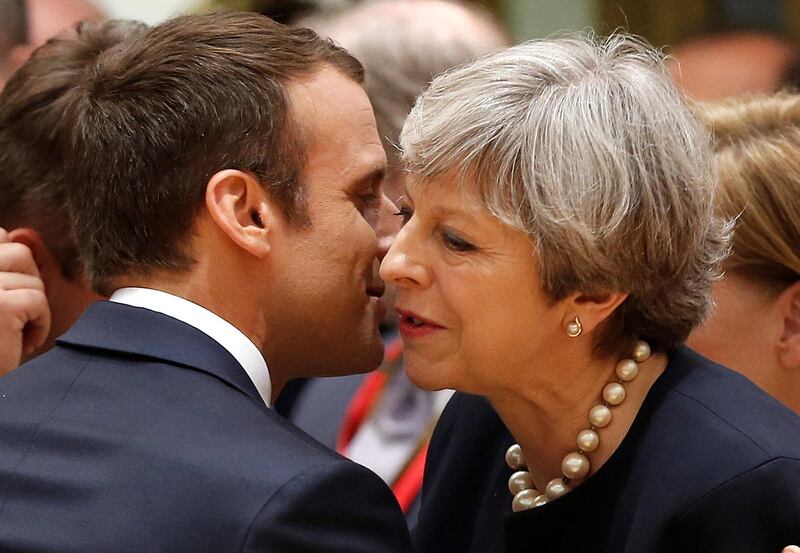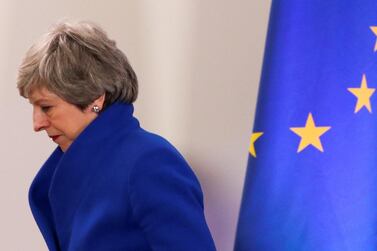Britain’s relationship with the European Union is mired in confusion after a crisis Brussels summit left pro-Brexit hardliners enraged, Remainers feeling ignored and opinion divided on the winners and losers.
The summit produced a classic EU fudge that avoided an immediate British departure without a deal – seen by many analysts as disastrous - but could lead to six months of further uncertainty.
The new deadline approved in the early hours of Thursday means Britain must finally approve a withdrawal agreement by October 31, leave without a deal or test public opinion with a new referendum or general election.
Withdrawal could come sooner if the British parliament finally accepts an agreement. But there is also scope for further delay, according to Donald Tusk, president of the European Council, which directs the EU political agenda.
Exasperation felt by Brexit campaigners is matched by gathering dismay in continental Europe at what is seen as the UK’s reluctant but fractious presence.
In France, which has its own brand of Euroscepticism especially on the far left and far right, Britain in Europe is derided as mutually disruptive.
The post-war French president Charles de Gaulle was the symbol of resistance to Britain joining in the first place. He dismissed British membership as incompatible with its links with the United States and a range of issues from the value of sterling to food supply.
“You only ever wanted European trade while still driving on the left and keeping your pound,” runs a common mantra recalling Gen de Gaulle’s famous veto.
“I no longer support remain,” said Jacques Reland, a French senior research fellow and former head of European research at a London-based think tank, the Global Policy Institute.
“More and more people see the UK as a perpetually stroppy neighbour Europe would be better off without,” he said. “Better for Europe, better for the UK.”
Britain’s prime minister Theresa May wanted a shorter delay to allow her to drum up cross-party support for a modified version of the deal she negotiated with the EU but which has been rejected three times by parliament.
She remains set on trying to force her deal through parliament. But she acknowledged the deep frustration of those who believed the UK should already have left.
The French president Emmanuel opposed postponing Brexit for up to a year as advocated by other EU leaders. He called for any extension to be subject to humiliating “good behaviour” conditions, effectively leaving the UK powerless within the union pending departure.
Elysee Palace officials had argued that any concession threatening EU functions was worse than Britain crashing out without a deal.
At one point, Mr Macron was accused by the EU Commission president Jean-Claude Juncker of pursuing a tough line “to solve French domestic problems”, a reference to the yellow vest protests, often violent, that have dogged France for five months.
Mr Macron failed to have conditions opposed on the UK but was still able to claim victory because the new deadline expires the day before the new EU commission takes effect.
He expressed satisfaction at “the best possible compromise” which preserved the unity of the EU and its smooth functioning.
Among Britain’s Brexit-supporting public figures, there was undisguised indignation. One parliamentarian, Sir Bill Cash, a member of Mrs May’s Conservative party, called the delay an "abject surrender" and asked whether she would now resign.
But while many within Mrs May divided party now claim she is more than ever at risk of being ousted, remainers demanding a fresh referendum complain a potentially significant shift in popular opinion is being ignored.
Anti-Brexit campaigners continue to press the opposition Labour leader Jeremy Corbyn to put aside long-standing Euroscepticism and insist on a second referendum that could overturn the vote to leave in June 2016.
Ahead of the Brussels summit, one prominent campaigner, Alastair Campbell, a key adviser during Tony Blair’s premiership, made a tour of French broadcasters to reinforce his pro-EU message. He told Europe 1 a new vote was justified because the first was won “by liars and charlatans”.
Meanwhile, French and British businesses on both sides stressed the need for certainty.
The 2,000 companies represented by the Paris-based Franco-British Chamber of Commerce overwhelmingly regretted the decision to leave the EU.
“But no deal is the three times loser - for the EU, Britain and business,” said Thierry Drilhon, the chamber’s president. “The extra time must used to establish clarity as soon as possible. Business can adapt but needs to know what is going to happen.”







